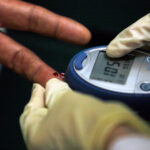If the new Dr Harry Surtie Hospital has all the latest tech, why are patients complaining?
“Splinter nuwe hospital, selle swak personeel en bestuur [brand new hospital, same weak staff and management]” reads a comment on the Facebook page of the Dr Harry Surtie Hospital in Upington in the Northern Cape. It was made just nine days after the state-of-the-art hospital opened its doors in November last year.
Another patient wrote: “I was deeply shocked and disgusted when I arrived at the hospital this morning. The two receptionists left their posts on my arrival and only returned half an hour later, leaving an entire waiting room of people unattended to. But who cares about sick people? The service is unacceptable.”
This was a month after the hospital’s opening. Staff and patients had been moved from the 82-year-old Gordonia hospital to what was supposed to be a new beacon of hope. Everything was new.
“The equipment at Gordonia was out of date and could not keep up with the increasing number of patients. So it was better to build a new hospital that will respond to the current challenges that we are experiencing,” said the provincial health spokesperson, Lulu Mxekezo.
“For example, dialysis patients are currently treated at Kimberley Hospital [410km from Upington]. Now, Dr Harry Surtie Hospital will provide dialysis to patients from the western side of the province so that they don’t need to travel to Kimberley.”
In addition to an increased bed capacity, the new hospital is equipped with a burns unit, which, according to the chief executive, Dina Beukes, is a big improvement over the Gordonia Hospital.
“In the old hospital we could not deal with wounds from burns – we had to send them to Kimberley. Now we can treat and dress the wounds ourselves,” she said.
Beukes said that the physical working environment was pivotal to building staff morale and improving healthcare delivery.
One “rotten apple” can cause damage
But, as reflected in the hospital’s Facebook page comments, the cracks are already starting show: a state-of-the-art hospital does not guarantee state-of-the-art services.
On November 10 last year, seven days after the hospital’s opening, Rudy van Zyl announced that he had laid a formal complaint about the “unethical and unprofessional conduct” of a doctor at the hospital.
“Only one rotten apple can cause damage to all [the] good ones in the basket,” he wrote on the social network. “What a shame [that some of the hospital’s doctors] believe they can trample on the dignity and rights of members of the public.”
Mxekezo said the department was aware of the complaints on the hospital’s Facebook page and was “working hard to deal with them as soon as possible”.
Furthermore, she said, the hospital had established a complaints committee to deal with patients’ grievances. She admitted that the new services at the hospital meant that the hospital needed more staff to meet the demand, something that had proved to be difficult.
“The recruitment of health personnel, especially clinicians, is a challenge in the country and is worse in our province as we are a rural province.
“We are struggling to recruit personnel but we are trying our best.”
From manual to fully automatic
Apart from the visually appealing design of the building, the hospital is equipped with sophisticated equipment. It is so advanced, in fact, that staff have had to undergo training “so that they can fully be able to utilise the equipment they have here”, Mxekezo said.
Beukes said: “The whole system is automatic; even the doors open with a finger scan. We still have to adjust to the new system.
“There is nothing that you can do manually,” she added. “Once the old records are transferred on to the system, we can actually go completely paperless. That is how high-tech this hospital is.”
But Elma de Vries, of the Rural Doctors Association, warned that often new hospitals were fitted with “complicated equipment that is difficult to maintain, especially in rural areas”.
“One always needs to ask if state-of-the-art is appropriate in our context,” she said. “Are the IT [information technology] and maintenance staff available immediately or will they have to send someone out from the city every time there is a problem?”
Mladen Poluta, convener of the healthcare technology management programme at the University of Cape Town, said that contractors put in charge of building new hospitals tended to overspecify and install engineering systems and equipment that went beyond what was required. “Contractors’ fees are a percentage of the total project cost so there is no incentive to be prudent.”
New equipment poses a “challenge”
According to Poluta, maintaining new equipment is a key challenge at hospitals like Dr Harry Surtie. Although it has only been operational for three months, and it’s too early to know whether equipment would be maintained properly, it’s certainly a challenge it’s likely to face.
“There aren’t enough people in South Africa who are suitably qualified to actually do the proper maintenance of our facilities and equipment, and that is a huge concern going forward,” Poluta said.
But Mxekezo said that the hospital had a computerised building management system in place that monitored the building’s mechanical, electrical and security system and then alerted the responsible managers to any malfunctioning equipment and infrastructure through emails, text messages or phone calls.
Poluta said such systems were useful “in that faults are captured in real time, enabling an early response. They can also notify engineering or technical support personnel located elsewhere of something that needs to be attended to.”
Even so, challenges such as budgets and protocols put in place to counter corruption can delay the process.
“A colleague told me that even to get a minor spare part for a piece of medical equipment at their institution they needed 30 signatures and this could take up to three months or more. And for those three months that piece of equipment is out of action.
“This results in hospitals where equipment is not maintained and therefore not working. Patients suffer or are inconvenienced. In some cases, they even die and then you see the headlines. Then in a panic the department of health sets up a team to investigate. It’s a kneejerk reaction, instead of instituting systems to ensure that these kinds of situations don’t develop in the first place,” he said.
Problem is poor management
The president of the South African Medical Association trade union, Phophi Ramathuba, said the problem lay with poor hospital management, which failed to put systems in place to deal with maintenance and servicing of the equipment.
Ramathuba said failure by the management of Chris Hani Baragwanath Hospital in Soweto to service generators left doctors and patients in the lurch twice last week.
“There was a patient with a ruptured ectopic pregnancy but there was a power outage during the surgery. The generator failed to kick in. Luckily the anaesthetic machine had a spare battery.
“Doctors had to use cellphones and iPads to light the theatre while performing the surgery in the early hours of Tuesday [January 21] morning … Hospitals are supposed to have a functional generator on standby in cases like this. Performing a surgery under these conditions is unhygienic and dangerous.”
The incident was reported to hospital management but, according to Ramathuba, the generator had not been fixed.
“On Friday [January 24], doctors had to operate with torches after the generator failed again,” she said.
“We cannot get state-of-the-art until managers have the right attitudes.”
But De Vries said effective “systems took time to be established” and that it was “way too soon to make any judgment” on the performance of the Dr Harry Surtie Hospital.
“More than just the building and equipment, the success of a hospital depends on teamwork, and building a team is a process. At this point, one can just encourage the management team and reserve judgment,” De Vries said.
Ina Skosana was a health reporter at Bhekisisa.





